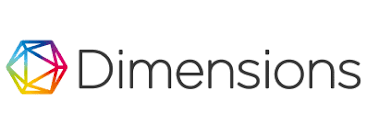Penerapan Program 'Kereta Anak Tertib' Di Taman Kanak-Kanak
Abstract
Keywords
Full Text:
PDFReferences
Achmanto. (2009). Laporan praktik kerja psikologi bidang psikologi pendidikan di TKN 1 Sleman, Yogyakarta. (Tidak diterbitkan). Magister Profesi Psikologi Fakultas Psikologi Universitas Gadjah Mada, Yogyakarta.
American Psychiatric Assosiation. (2000). Diagnostic and statistical manual of mental disorder.(4th ed.). Text revision. Washington, DC: Author.
Barlow, D.H. & Hersen, M. (1984). Single case experimental designs. (2nd ed.). New York: Pergamon Press, Inc.
Baron, A. & Perone, M. (1998). Experimental design and analysis. Dalam K.A. Lattal dan M. Perone (Editor). Handbook of research methods in human operant behavior. New York: Plenum Press.
Bentham, S. (2002). Psychology and education. New York: Routledge.
Bowen, J., Jenson, W.R. & Clark, E. (2004). School-based interventions for students with behavior problems. New York: Kluwer Academic/ PlenumPublishers.
Bush, K. R., & Peterson, G.W. (2008). Family influences on child development. Dalam T.P. Gullotta dan G.M. Blau (Editor). Handbook of childhood behavioral issues: Evidence-based approaches to prevention and treatment. New York: Routledge.
Conover, W.J. (1980). Practical nonparametric statistics. (2nd ed.). New York: John Wiley & Sons.
Cooper, J.O., Heron, T.E., & Heward, W.L. (1987). Applied Behavior Analysis. Ohio: Merrill Publishing Company
Departemen Pendidikan Nasional Direktorat Jenderal Pendidikan Dasar dan Menengah Direktorat Pendidikan TK dan SD, (2004). Kurikulum TK dan RA standar kompetensi. Jakarta: Tim Penyusun.
Duda, M.A., Dunlop, G., Fox, L., Lentini, R., & Clarke, S. (2004). An experimental evaluation of positive behavior support in a community preschool program. Topics in Early Childhood Special Education. 24(3), 143-155.
Essau, C.A. (2003). Conduct and oppositional defiant disorders: epidemiology, risk, factors, and treatment. New Jersey: Lawrence Erlbaum.
Godfrey, S.A., Grisham-Brown, J., Schuster, J.W., & Hemmeter, M.L. (2003). The effests of three techniques on student participation with preschool children with attending problems. Education and Treatment of Children, 26(3), 255-272.
Herbert, M. & Wookey, J. (2004). Managing childrens disruptive behaviour: A guide for practitioners working with parents and foster parents. West Sussex: John Willey and Sons.
Hergenhann, B.R & Olson, M.H. (1997). An introduction to theories of learning.fifth edition.
Upper Saddle River: Prentice-Hall, Inc.
Hetherington, E.M., Parke, R.D., & Locke, V.O. (1998). Child psychology: A contemporary view point. (5th ed.). Boston: McGraw-Hill.
Irwin, D.M. & Bushnell, M.M. (1980). Observational strategies for child study. New York: Holt, Rinehart and Winston.
Kazdin, A.E. (2001). Behavior modification in applied settings. New Haven: Wadsworth Thompson Learning.
Keenan, T. & Evans, S. (2009). An introduction to child development. (2nd ed.). London: SAGE
Kehle, T.J., Bray, M.A., Theodore, L.A., Jenson, W.R., & Clark, E. (2000). A multi-component intervention designed to reduce disruptive classroom behavior. Psychology in the School, 37(5), 475-481.
Martin, G. & Pear, J. (2003). Behavior modification: What it is and how to do it. New York: Pearson Prentice Hall
Martini–Scully, D., Bray, M.A., and Kehle, T.J. (2000). A packaged intervention to reduce disruptive behaviors in general education students. Psychology in the Schools, 37(2), 149-156.
Matthys, W. & Lochman, J.E. (2010). Oppositional defiant disorder and conduct disorder in children. West Sussex: John Wiley & Sons, Ltd.
Miles, S.B. & Stipek, D. (2006). Contemporaneous and longitudinal associations between social behavior and literacy achievement in a sample of low-income elementary school children. Child Development, 77(1), 103–117.
Miller, L.K. (1997). Principles of everyday behavior analysis. (3rd ed.). California: Brooks/Cole Publishings Company
Musser, E. H., Bray, M. A., Kehle, T. J., Jenson, W. R. (2001). Reducing disruptive behaviors in students with serious emotional disturbance. School Psychology Review, 30(2), 294-305.
Neary, E.M & Eyberg, S.M. (2002). Management of disruptive behavior in young children. Infant and Young Children, 14(4): 53–67.
Ningsih, IG. (2008). Token ekonomi untuk menurunkan perilaku agresif pada anak usia prasekolah. (Tesis tidak diterbitkan). Program Magister Profesi Psikologi Fakultas Psikologi Universitas Gadjah Mada, Yogyakarta.
Sattler, J.M. (2002). Assessment of children: Behavioral and clinical applications (4th Ed). La Mesa: Jerome M. Sattler Publisher, Inc.
Sebanc, A.M. (2003). The friendship features of preschool children: links with prosocial behavior and aggression. Social Development, 12(2), 249-268.
Slavin, R.E. (2000). Educational psychology: Theory and practice. (6th ed.). Boston: Allyn and Bacon.
Stage, S.A. & Quiroz, D.R. (1997). A meta-analysis of interventions to decrease disruptive classroom behavior in public education. School Psychology Review, 26(3), 333-396
Sunanto, J., Takeuchi, K., & Nakata, H. (2005). Pengantar penelitian dengan subjek tunggal. Tsukuba: CRICED.
Tirtayani, L.A. (2009). Laporan praktik kerja psikologi bidang psikologi pendidikan di TK negeri 1 Sleman, Yogyakarta. (Tidak diterbitkan). Magister Profesi Psikologi Fakultas Psikologi Universitas Gadjah Mada, Yogyakarta.
Wicks-Nelson, R. & Israel, A.C. (2006). Behavior disorders of childhood. (6th ed.). Upper Saddle River: Pearson Education, Inc.
Wilson, S.J., Lipsey, M.W., & Derzon, J.H. (2003). The effects of school-based interventions programs on aggressive and disruptive behavior: a meta-analysis. Journal of Consulting and Clinical Psychology, 71(1), 136-149
Wilson, S.J. & Lipsey, M.W. (2007). School-based interventions for aggressive and disruptive behavior: update of a meta-analysis. American Journal of Prevention and Medication, 33(2), 130-143.
Wulansari, R. (2009). Laporan praktik kerja profesi bidang psikologi pendidikan di TK Negeri 2 Yogyakarta. (Tidak diterbitkan). Magister Profesi Psikologi Fakultas Psikologi Universitas Gadjah Mada, Yogyakarta.
DOI: http://dx.doi.org/10.24014/jp.v8i1.180
Refbacks
- There are currently no refbacks.
REDAKSI : JURNAL PSIKOLOGI
Jl. H.R. Soebrantas Km. 15.5 No. 155,
Gedung Fakultas Psikologi UIN Sultan Syarif Kasim Riau
Kel. Tuahmadani, Kec. Tampan, Pekanbaru – Riau 28293
1.jpg)
.jpg)














